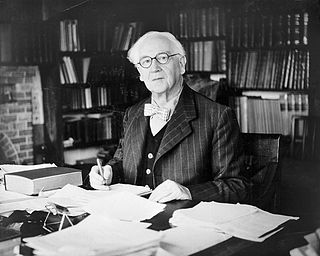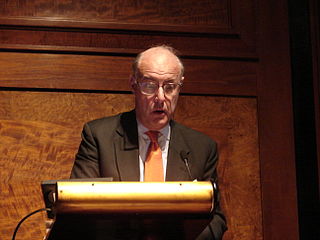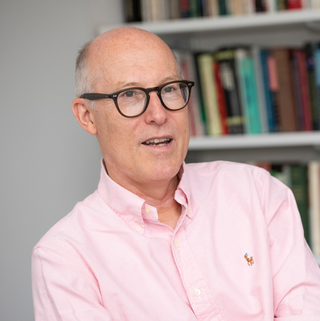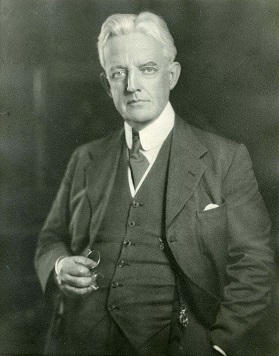Related Research Articles

Charles Joseph Singer was a British historian of science, technology, and medicine. He served as medical officer in the British Army.

Sir David Nicholas Cannadine is a British author and historian who specialises in modern history, Britain and the history of business and philanthropy. He is currently the Dodge Professor of History at Princeton University, a visiting professor of history at Oxford University, and the editor of the Oxford Dictionary of National Biography. He was president of the British Academy between 2017 and 2021, the UK's national academy for the humanities and social sciences. He also serves as the chairman of the trustees of the National Portrait Gallery in London and vice-chair of the editorial board of Past & Present.

Paul Michael Kennedy is a British historian specialising in the history of international relations, economic power and grand strategy. He has published on the history of British foreign policy and great power struggles, emphasizing the changing economic power base that undergirds military and naval strength, noting how declining economic power leads to reduced military and diplomatic weight.

Irfan Habib is an Indian Communist historian of ancient and medieval India, following the methodology of Marxist historiography in his contributions to economic history. He identifies as a Communist and is well known for his strong stance against Hindutva and Islamic fundamentalism. He has authored a number of books, notably the Agrarian System of Mughal India, 1556–1707, an Atlas of the Mughal Empire: Political and Economic Maps With Detailed Notes, and an Atlas of Ancient Indian History. As the general editor, he is also the driving force behind the A People's History of India series, volumes of which continue to be released.

Sir Robert Milton Worcester, is an American-born British pollster who is the founder of MORI and a member and contributor to many voluntary organisations. He is a well-known figure in British public opinion research and political circles and as a media commentator, especially about voting intentions in British and American elections.

Charles McLean Andrews was an American historian, an authority on American colonial history. He wrote 102 major scholarly articles and books, as well as over 360 book reviews, newspaper articles, and short items. He is especially known as a leader of the "Imperial school" of historians who studied, and generally admired, the efficiency of the British Empire in the 18th century. Kross argues:
Sir Hrothgar John Habakkuk was a British economic historian.

Sir Timothy John Besley, is a British academic economist who is the School Professor of Economics and Political Science and Sir W. Arthur Lewis Professor of Development Economics at the London School of Economics (LSE).

Catharine Drew Gilpin Faust is an American historian who served as the 28th president of Harvard University, the first woman in that role. She was Harvard's first president since 1672 without an undergraduate or graduate degree from Harvard and the first to have been raised in the South. Faust is also the founding dean of the Radcliffe Institute for Advanced Study. She has been ranked among the world's most powerful women by Forbes, including as the 33rd most powerful in 2014.
The International Commission for Maritime History (ICMH) was established in 1960 to promote international cooperation and the exchange of ideas in the field of maritime history. It is affiliated with the International Committee of Historical Sciences.

Alan George Lewers Shaw was an Australian historian and author of several text books and historiographies on Australian and Victorian history. He taught at the University of Melbourne and the University of Sydney, and was professor of history at Monash University from 1964 until his retirement in 1981.
Sir Keith Vivian Thomas is a Welsh historian of the early modern world based at Oxford University. He is best known as the author of Religion and the Decline of Magic and Man and the Natural World. From 1986 to 2000, he was president of Corpus Christi College, Oxford.

Peter Mathias, was a British economic historian and the former Chichele Professor of Economic History at the University of Oxford. His research focused on the history of industry, business, and technology, both in Britain and Europe. He is most well known for his publication of The First Industrial Nation: an Economic History of Britain 1700–1914 (1969), which discussed not only the multiple factors that made industrialisation possible, but also how it was sustained.
Frederic C. Lane was a historian who specialized in Medieval history with a particular emphasis on the region of Venice.

Raymond Clare Archibald was a prominent Canadian-American mathematician. He is known for his work as a historian of mathematics, his editorships of mathematical journals and his contributions to the teaching of mathematics.
The Australian Association for Maritime History (AAMH) is an Australian maritime history organisation. It publishes a journal, a newsletter and organises conferences.
Ann Margaret Savours Shirley was a British historian of polar exploration, covering both the Arctic and Antarctic. She was most widely known for her study of Robert Falcon Scott's ship HMS Discovery.

Roy Malcolm MacLeod is an American-born historian who has spent his career working in the United Kingdom and Australia. He is a specialist on the history and social studies of science and knowledge.
Edwin Alfred Dawes was a British biochemist and magician from Yorkshire. As a biochemist, he authored two textbooks and was the long-term and founding head of the Biochemistry department at the University of Hull, where he led its research into bioplastics. As a magician, he was an internationally recognised authority on the history of magic.
Jordi Nadal was a Spanish economist and historian. He earned a doctorate in history from the University of Barcelona and became a professor at the University of Valencia and Pompeu Fabra University.
References
- 1 2 3 "Staff: Graydon Henning". University of New England. 12 June 2008. Archived from the original on 13 October 2010. Retrieved 21 February 2010.
- 1 2 3 Scanlan, Jim (28 July 2005). "UNE economic historian heads International Commission". University of New England. Archived from the original on 14 April 2011. Retrieved 21 February 2010.
- ↑ "The Great Circle: General Editors". The Australian Association for Maritime History. Archived from the original on 13 October 2009. Retrieved 21 February 2010.